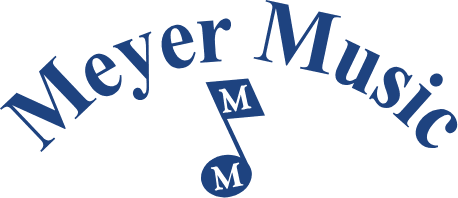How Music Engages Both Sides of the Brain and Benefits Children
Nov 03, 2023

Music has long been recognized as a powerful art form that transcends boundaries and touches our souls. It is not only a source of entertainment but also a remarkable tool for cognitive development. One fascinating aspect of music is its ability to engage both sides of the brain simultaneously, leading to numerous benefits for children. Did you know that music activates and harmonizes the left and right hemispheres of the brain? That’s why it can be beneficial to start your child in private music lessons.
Did you know that music bridges both the left and right side of the brain?
The human brain is divided into two hemispheres, each with its unique functions. The left hemisphere is associated with analytical thinking, language processing, and logical reasoning, while the right hemisphere is responsible for creativity, imagination, and emotional expression. Music is one of the few activities that can effectively bridge these two hemispheres, creating a harmonious interplay between logical and creative processes.
Music lessons also play a role in language development in children.
Research suggests that music lessons can have a profound impact on language development in children. Learning to play an instrument or sing involves decoding symbols, recognizing patterns, and understanding rhythm. These skills are closely tied to language acquisition and phonological awareness. Engaging in music lessons from an early age can lay a strong foundation for reading, writing, and verbal communication skills. Moreover, studies have shown that children who participate in music education demonstrate enhanced cognitive abilities, such as improved memory, attention, and problem-solving skills.
How does learning to play an instrument help children develop mathematical skills?
Music is inherently mathematical, and learning to read music notation and play an instrument requires a strong sense of spatial-temporal awareness. The process of reading and playing music engages the brain's spatial reasoning skills, as children must interpret symbols on the page and translate them into precise finger movements. This spatial-temporal training has been linked to improved mathematical abilities, reasoning skills, and even performance in subjects like geometry and physics. Additionally, the rhythmic patterns in music help children develop a sense of timing and coordination.
Did you know that music lessons also help children with emotional intelligence?
Music is a language that transcends words and allows for emotional expression. When children engage with music, whether by playing an instrument or singing, they tap into their emotional reservoirs and learn to express and regulate their feelings. This emotional intelligence gained through music lessons can positively impact children's social interactions, empathy, and understanding of others. Music also provides opportunities for collaborative experiences, such as playing in an ensemble or performing in a choir, fostering teamwork, and promoting social skills.
Music also helps children stimulate senses.
Music engages multiple senses simultaneously, creating a multisensory experience that stimulates the brain in various ways. Children listen to melodies, read sheet music, interpret visual cues, and physically manipulate instruments. This multisensory stimulation strengthens neural connections and enhances sensory integration, leading to improved overall brain function and sensory processing abilities.
Music lessons can help shape young minds. By engaging both sides of the brain, music lessons provide a holistic learning experience that enhances language skills, spatial-temporal abilities, emotional intelligence, and social aptitude. Children who learn to play an instrument early on benefit from improved cognitive skills and creative exploration. Visit any one of Meyer Music’s three locations to sign up for private music lessons. Our vetted, experienced teachers are skilled in multiple instruments and teach more children in the Kansas City metropolitan area than any other music store.

